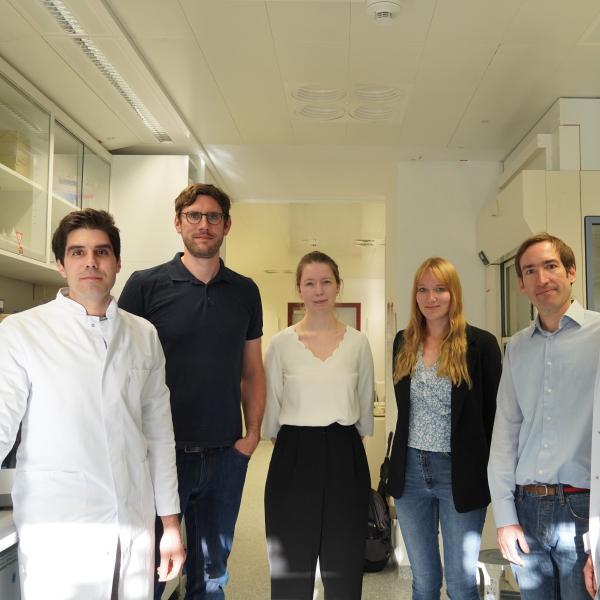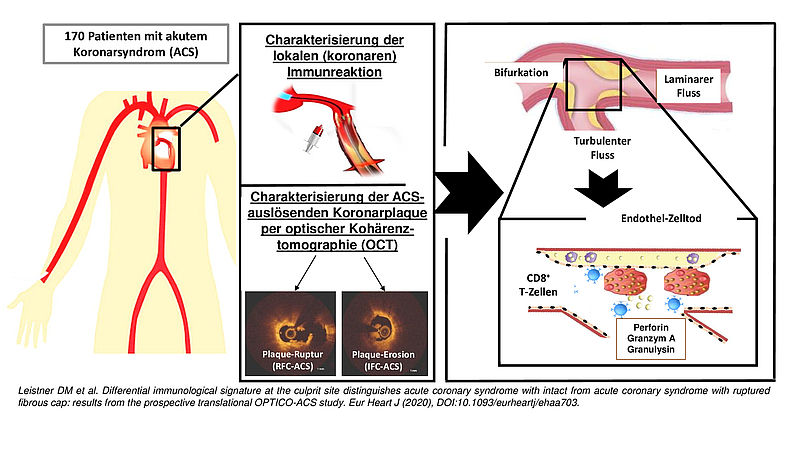In Germany alone, around 300,000 people suffer a heart attack every year. The treatment of patients has significantly improved throughout the recent decades. Nevertheless, many of those affected develop heart failure after the event because the heart muscle does not recover.
According to findings from animal studies, the inflammatory reaction plays an important role after an infarction and has a decisive influence on whether the functions of the heart muscle are restored. "A misdirected or excessive immune response can jeopardize the recovery of the heart function," says Dr. Kami Pekayvaz, lead author of the new study and clinician scientist at Department of Medicine I at LMU University Hospital, LMU Munich.
A team led by him, Viktoria Knottenberg, PD Dr. Leo Nicolai and Prof. Konstantin Stark from the Medical Clinic I of the LMU Hospital Munich and Corinna Losert and Dr. Matthias Heinig from Helmholtz Munich has analyzed for the first time how the immune system reacts to a heart attack in humans. The researchers examined the blood samples of heart attack patients who were treated at the LMU Hospital and showed different clinical outcomes.
Atlas of immune responses
A specific bioinformatics technique (MOFA, for Multi-Omics Factor Analysis) recognized overarching patterns in the mass of data obtained. "This method is ideal for identifying and summarizing many smaller effects that are coordinated in the same direction," says Dr. Matthias Heinig, head of a bioinformatics working group at Helmholtz Munich. This made it possible to create an atlas of immune responses after a heart attack. "These patterns can explain differences between the clinical and temporal courses of the patients," says Prof. Konstantin Stark, Senior Consultant in Cardiology at the LMU Hospital. This means that certain of these "immune signatures" are associated with a better recovery of heart function, others with a worse one.
This atlas of the immune response in myocardial infarction is highly relevant for further basic cardiovascular research and potentially indicates that multi-omics analyses of blood samples could be used to predict the clinical course of a heart attack patient. However, the concept of MOFA-based diagnostics in cardiovascular diseases must be tested in further studies - and this is what the Munich researchers intend to do in the coming years.
Link to the original publication: Multiomic analyses uncover immunological signatures in acute and chronic coronary syndromes (Pekayvaz et al., 2024)
Source: press release LMU



